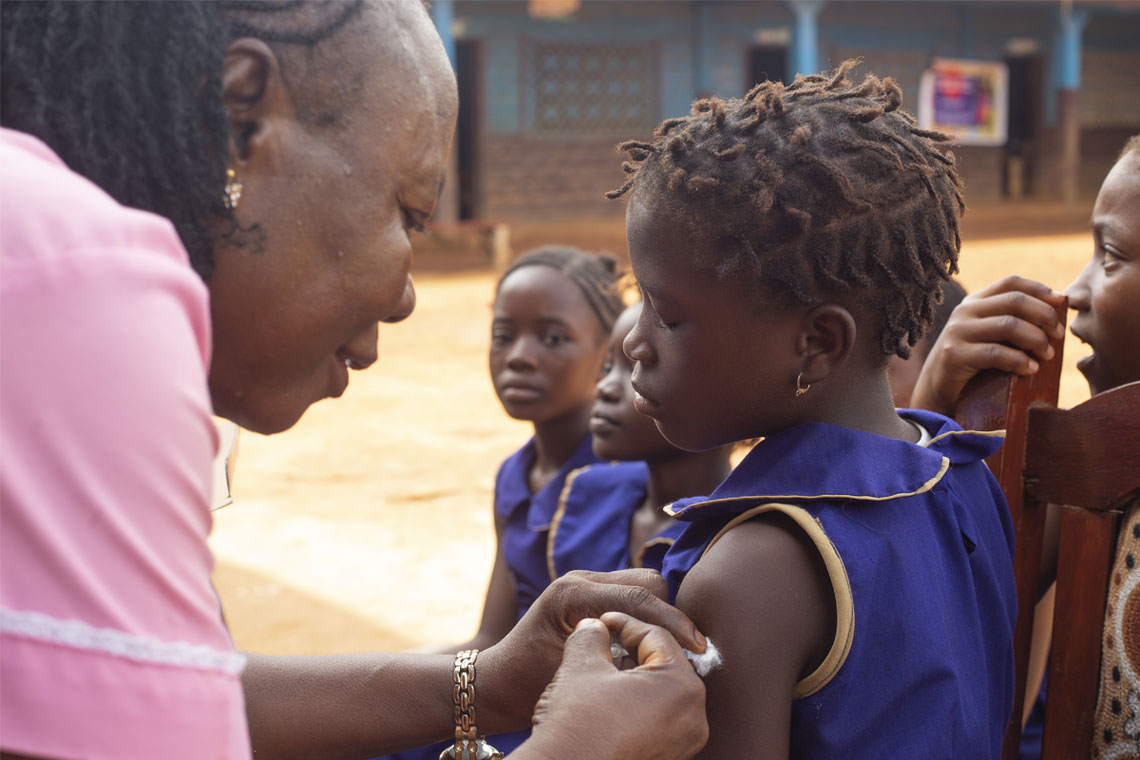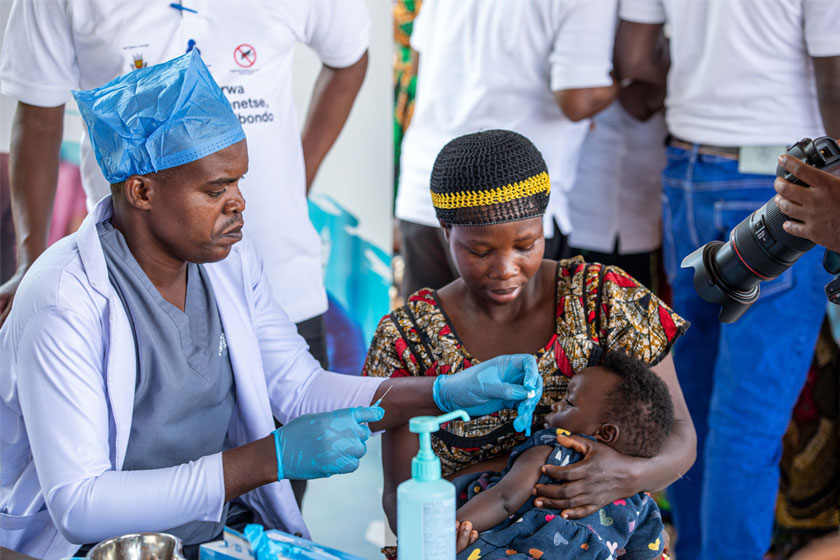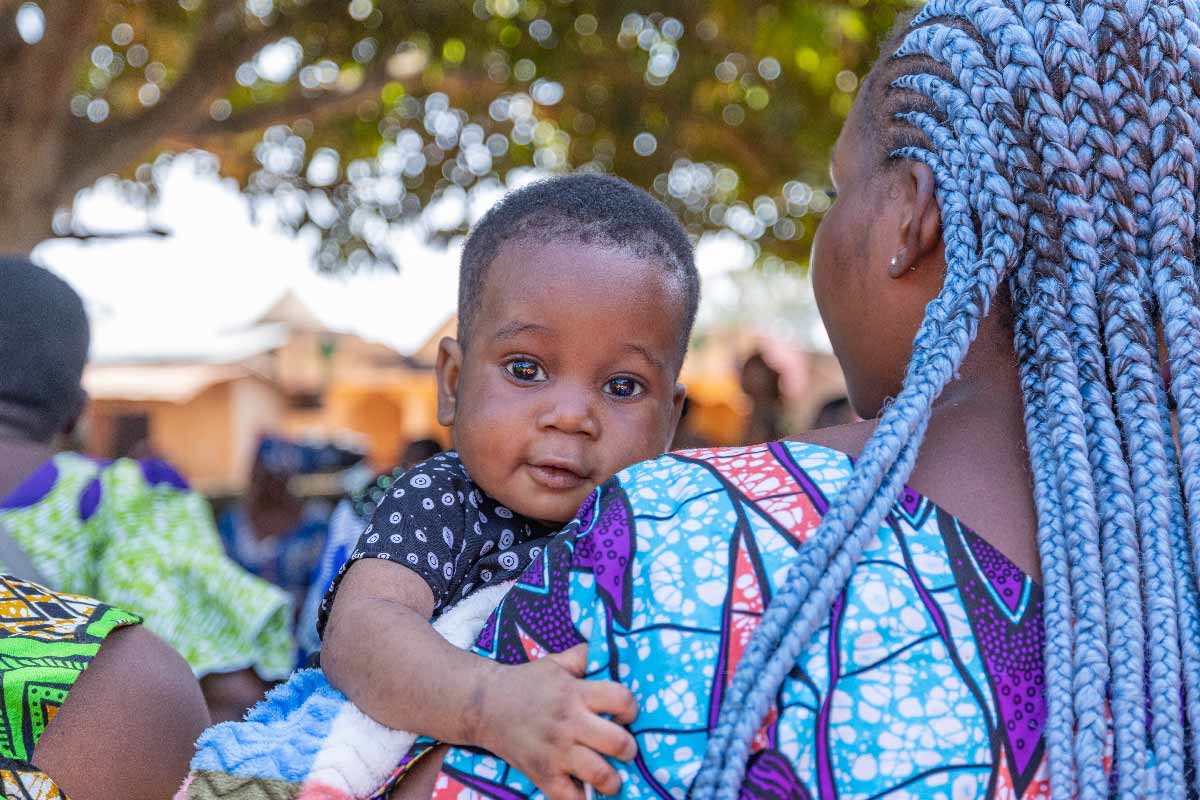Vaccine exemptions in US children reach an all-time high
Immunisation rates for required vaccines remain below pre-pandemic levels.
- 14 November 2023
- 3 min read
- by Gavi Staff

The percentage of US children receiving essential childhood vaccines remains below the target required to protect children from deadly infections.
In 2022–2023, vaccine exemptions for religious or ‘philosophical’ reasons were at an all-time high, according to the US Centers for Disease Control and Prevention (CDC), putting hundreds of thousands of children at risk and setting the stage for deadly childhood diseases to return.
In a bid to improve vaccine coverage, the CDC calls for schools and providers to ensure that students are vaccinated before school entry, such as during the enrolment process several months before school starts.
Coverage for key vaccines – the measles, mumps, and rubella (MMR) vaccine, diphtheria, tetanus, and pertussis-containing (DTP3) vaccine and poliovirus vaccine fell in most states from 95% in 2019–2020 to 92.7% for DTP3 and 93.1% for MMR and polio.
According to the CDC report, the vaccine exemption rate increased 0.4 percentage points to 3.0%. Exemptions increased in 41 states, exceeding 5% in 10 states. When vaccine coverage falls below the 95% target set by the World Health Organization, it raises the risk of disease outbreaks, leaving young children vulnerable to severe illness and death.
Many of these diseases stopped being public health problems in high-income countries decades ago, which health experts believe may be contributing to complacency around vaccination.
Yet in low- and middle-income countries where vaccine coverage is much lower because people either have no access to health facilities, or resources are too inadequate to run regular vaccination programmes, people are all too familiar with the consequences of not vaccinating their kids.
Have you read?
For instance, measles can cause brain inflammation or pneumonia, and even those who survive can lose their sight. Pertussis or whooping cough is a severe respiratory illness that still kills 160,000 babies a year. Diphtheria can stop people breathing, and damage the heart, kidneys and nerves. Even with treatment, one in ten people can die.
Falling rates of routine immunisation in high-income countries is leading to the resurgence of diseases that had long been eliminated. The USA had eliminated measles in 2000, but lower vaccine coverage meant that almost 1,300 cases of measles were reported in 31 states in 2019 – the largest number of cases since 1992. Similarly, the UK lost its measles-elimination status in 2018 as cases spiked. In 2022, the percentage of children receiving a second dose of measles-containing vaccine was 87%.
Vaccine hesitancy has been rising in many high-income countries including the USA. Of the 3.0% of kindergartners that had an exemption, just 0.2% were for medical reasons.
Some states are tightening up the allowances for exemptions. In response to the 2019 measles outbreak, New York eliminated the religious exemption to vaccine requirements.
In a bid to improve vaccine coverage, the CDC calls for schools and providers to ensure that students are vaccinated before school entry, such as during the enrolment process several months before school starts.
The report says, “State and local provisional enrollment periods that allow students to attend school while on a catch-up schedule also provide the opportunity to fully vaccinate students and to prevent nonmedical exemptions resulting from lingering undervaccination due to COVID-19 pandemic-related barriers to vaccination, such as reduced access to vaccination appointments.”
A 2012 study led by infectious disease epidemiologist Saad Omer showed that legislation narrowing the options for parents to obtain exemptions could lower the opt-out rates.
Omer, who is Dean of Peter O-Donnell Jr. School of Public Health at UT Southwestern in Dallas, said “It’s common sense to have the balance of convenience in favour of vaccination rather than exemption. It doesn’t take away anyone’s liberty to seek an exemption, but it does add a little bit of a burden for them to go through a process to get this exemption.”









